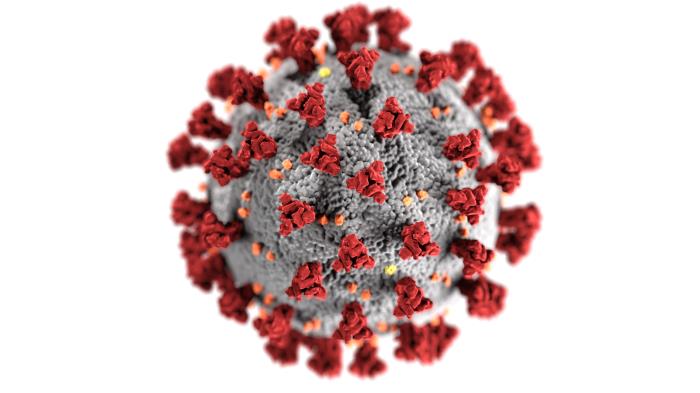
MIPS QPP Exceptions for 2020: Extreme and Uncontrollable Circumstances (Including COVID-19)
CMS recently published the 2020 Quality Payment Program Exceptions for extreme and uncontrollable circumstances that affect one or more Merit-based Incentive Payment System (MIPS) categories. If approved, the clinician or group will not need to report data for one or more MIPS categories for the 2020 performance year. At this writing the exceptions do not apply to Alternative Payment Model Entities although this is being reviewed by CMS.
MIPS extreme and uncontrollable circumstances applications are due by December 31, 2020 at 8 PM ET.
Clinicians can apply for one of the following exceptions:
- Extreme and Uncontrollable Circumstances Exception
- MIPS Promoting Interoperability Performance Category Hardship Exception
Extreme and Uncontrollable Circumstances Exception:
This exception allows practices to apply for reweighting (to 0%) of any or all MIPS performance categories if the practice encounters extreme and uncontrollable circumstance or a public health emergency, such as COVID-19, that is outside of the practice’s control.
Reweighting to zero means that the practices will not receive a score based on data reported for that category, even if they do not report any data. If all categories of MIPS are reweighted the practice will receive a neutral payment adjustment in the 2022 payment year.
The Extreme and Uncontrollable Circumstances exception type is applicable to MIPS eligible clinicians, groups and virtual groups. The application will need to specify the specific MIPS categories that were impacted. It will also need to state how the associated extreme and uncontrollable circumstance or public health emergency interfered with their ability to report data from one or more MIPS categories.
Extreme and uncontrollable circumstances applications will be reviewed on a case-by-case basis by CMS. If approved the performance categories included in the application will be weighted at 0%. They will not be included in the termination of the final score unless the practice elects to submit data for the same categories. In other words, if the practice requests an exception for the quality performance category of MIPS, but still submits data, they will be scored on the data submitted.
CMS states that in order to be approved for an extreme and uncontrollable circumstances exception the practice will need to document that they have been prevented from collecting data for an extended period of time or have experienced challenges that impact the practices performance on cost measures.
In prior years CMS automatically granted extreme and uncontrollable circumstance exceptions to practices in CMS-designated areas. For example, in prior years this is included areas impacted by hurricanes or major forest fires. If this occurs, practices that in one of these CMS designated areas that do not submit data will receive a neutral payment adjustment in the 2022 payment year. They still have the option of submitting data if they feel it will be in their best interest.
Practices do not need to submit documentation with their application. However, practices should retain documentation of the circumstances supporting their application for their own records in the event they are selected by CMS for a data validation audit.
Groups and virtual groups will not be scored on the All-Cause Hospital Readmission measure if their application to re-weigh the quality performance category 20% is approved.
If the practice does elect to submit data after receiving approval from CMS to re-weigh the same performance categories to 0%, the following applies:
- A practice must be scored on at least 2 performance categories to earn a MIPS final score that is greater than the performance threshold.
- When fewer than 2 performance categories are scored the practice will automatically earn the performance threshold score of 45 points in 2020. This will result in neutral payment adjustments in 2022.
CMS will take in consideration the length of time a practice was impacted by extreme and uncontrollable circumstance when reviewing the application. For example, the performance period for an improvement activity category is 90 days in the performance period is 12 months. This makes it more likely that CMS would approve the exception for the quality category if the disruption had a duration of several months. Under this scenario the practice may still be expected to report data for the improvement activity performance category.
Reweighting Scenarios for 2020
| Performance Category Reweighting Scenario |
Quality Category Weight |
Cost Category Weight |
Improvement Activities Category Weight |
Promoting Interoperability Category Weight |
| No Reweighting | 45% | 15% | 15% | 25% |
| Reweight 1 Performance Category | ||||
| No Cost | 55% | 0% | 15% | 30% |
| No Promoting Interoperability | 70% | 15% | 15% | 0% |
| No Quality | 0% | 15% | 15% | 70% |
| No Improvement Activities | 60% | 15% | 0% | 25% |
| Reweight 2 Performance Categories | ||||
| No Cost and No Promoting Interoperability | 85% | 0% | 15% | 0% |
| No Cost and No Quality | 0% | 0% | 15% | 85% |
| No Cost and No Improvement Activities | 70% | 0% | 0% | 30% |
| No Promoting Interoperability and No Quality | 0% | 50% | 50% | 0% |
| No Promoting Interoperability and No Improvement Activities | 85% | 15% | 0% | 0% |
| No Quality and No Improvement Activities | 0% | 15% | 0% | 85% |
Source: CMS Quality Payment Program:
Information about the 2020 MIPS Promoting Interoperability Performance Category Hardship Exception is available here.
For more information contact us at info@apollohit.com
